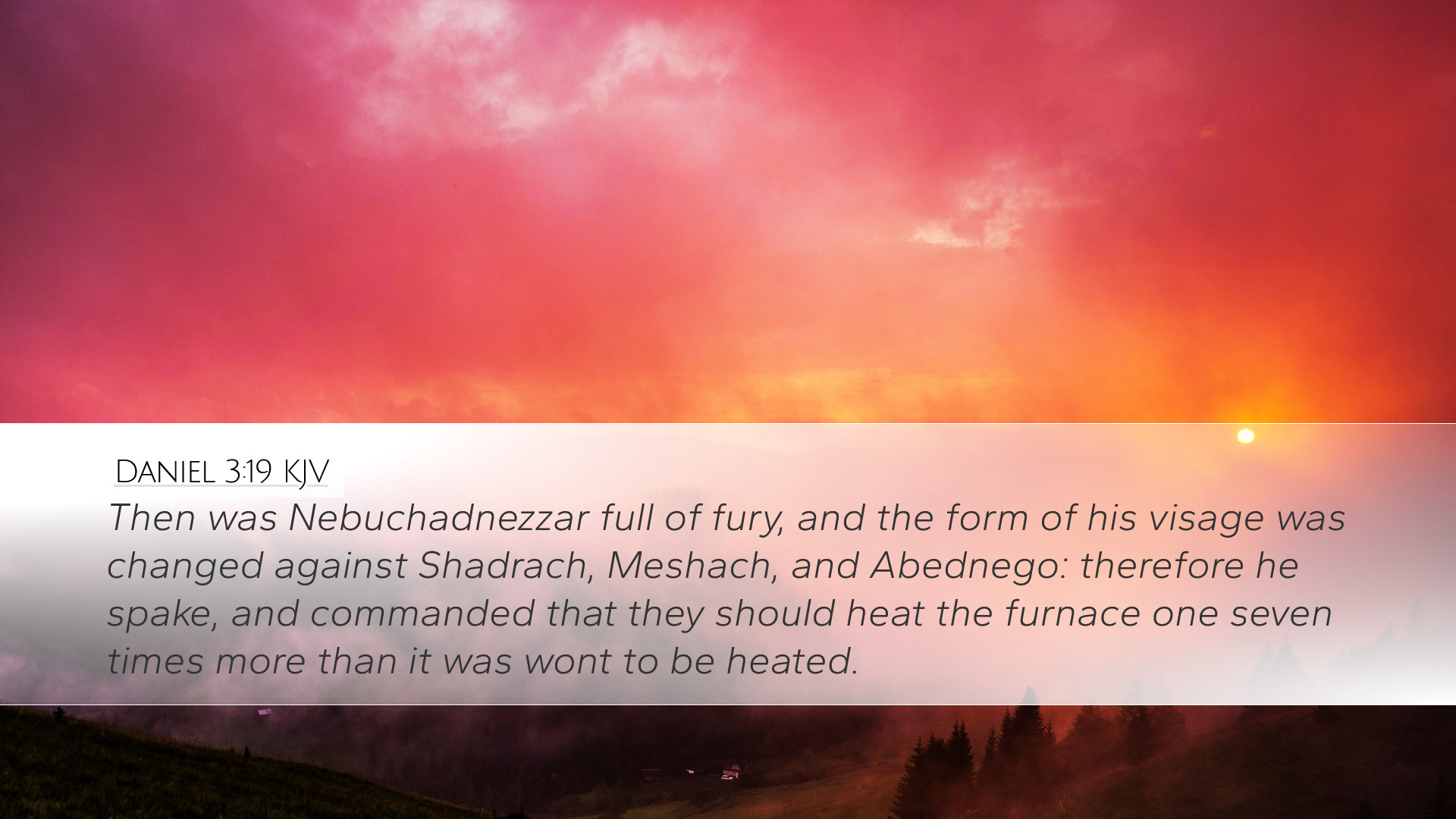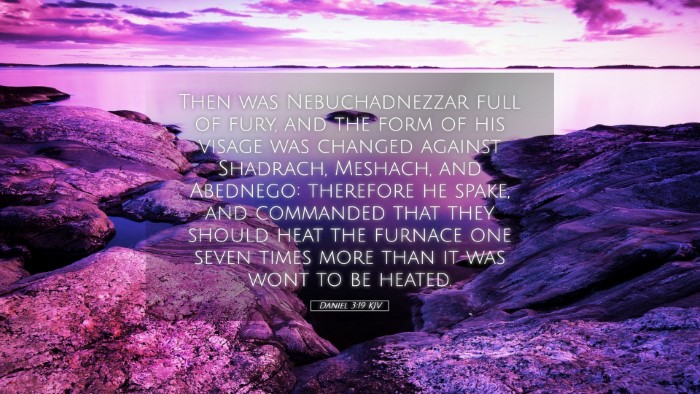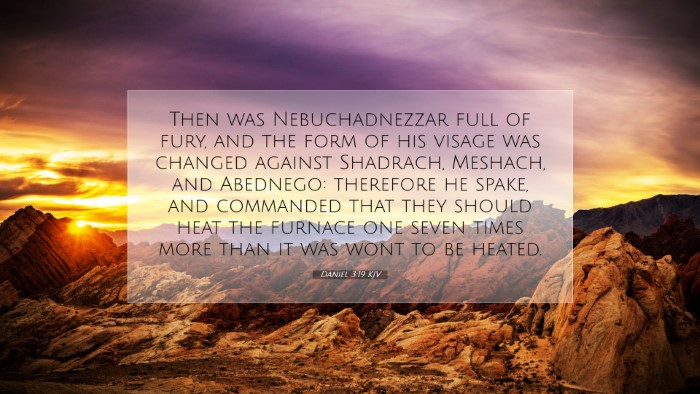Commentary on Daniel 3:19
Daniel 3:19 states: "Then was Nebuchadnezzar full of fury, and the form of his visage was changed against Shadrach, Meshach, and Abednego: therefore he spake, and commanded that they should heat the furnace one seven times more than it was wont to be heated."
Overview
This verse occurs in a critical juncture in the narrative of the fiery furnace, demonstrating the intense reaction of King Nebuchadnezzar to the defiance posed by Shadrach, Meshach, and Abednego, who refused to worship his golden statue. The passage reveals not only the king's fury but also his willingness to escalate the punishment beyond ordinary measures, showcasing both human pride and the testing of faith.
The King's Fury
As noted in Matthew Henry's Commentary, Nebuchadnezzar's wrath reflects the inner turmoil of a ruler who perceives a direct challenge to his authority. Such fury is not merely an emotional outburst but symbolizes a deeper spiritual blindness and an unyielding commitment to the idolatry he has imposed upon his empire.
Albert Barnes elaborates on the nature of Nebuchadnezzar's anger, emphasizing its irrationality. His immediate reaction to the refusal of the three Hebrew men illustrates how pride can lead to escalating consequences. The king's character exemplifies the extremes of human emotion when integrity confronts tyranny.
Changed Visage
The phrase "the form of his visage was changed" indicates a moment of transformation in Nebuchadnezzar's demeanor. This transformation is indicative of both heightened anger and perhaps a fear of losing control. Adam Clarke notes that such a change in countenance could be a literal interpretation of the physical manifestations of anger, reminding us that the internal emotional state can profoundly affect outward expression.
Heating the Furnace
The directive to heat the furnace "seven times more" carries a dual significance. On one hand, it underscores the king's desire for vengeance and his intent to make an example out of Shadrach, Meshach, and Abednego. The number seven can symbolize completeness or perfection; thus, heating the furnace seven times more illustrates an attempt to achieve a 'perfect' execution of punishment, as noted by Barnes.
Furthermore, Matthew Henry suggests that this act symbolizes the escalating trials faced by the faithful. It serves as a reminder to those who follow God that the path of righteousness may lead through severe trials, but God's protection remains steadfast. The readiness of the furnace points to the extremity of the suffering that the faithful may endure for their beliefs.
Theological Implications
This verse carries profound theological implications regarding obedience to God versus submission to authority. The refusal of the three men to bow to the statue reflects their unwavering commitment to the God of Israel. Henry emphasizes that their act of defiance was not born out of rebellion, but out of fidelity to their beliefs.
- The Cost of Discipleship: This scenario illustrates that true faith may demand costly sacrifices and that following God's commandments may put believers in direct opposition to governing authorities.
- The Trials of Faith: As believers encounter hostility for their beliefs, this verse serves as a reminder that God often uses such trials to strengthen faith and to unveil His deliverance.
- The Sovereignty of God: The reaction of Nebuchadnezzar ultimately leads to a divine demonstration of God's power, establishing that no earthly king has dominion over the divine will.
Reflections for Spiritual Growth
For pastors, students, theologians, and Bible scholars, the tensions outlined in Daniel 3:19 encourage a deeper reflection on perseverance in faith during trials. Clarke's commentary draws attention to the necessity of spiritual resilience, urging believers to remain steadfast in their convictions, regardless of opposition.
Moreover, the account illustrates God's providence—He does not abandon His followers in the flames of adversity. This message serves as a source of comfort and encouragement, reassuring believers that their faith will ultimately lead to triumph and God's glory being revealed.
Conclusion
In summary, Daniel 3:19 encapsulates the conflict between faithfulness and worldly power, the profound nature of human emotion when confronted with spiritual truth, and the steps that lead to divine intervention. As believers reflect on this passage, may they find strength and encouragement to stand firm in their faith, trusting that their ultimate allegiance is to the one true God.


